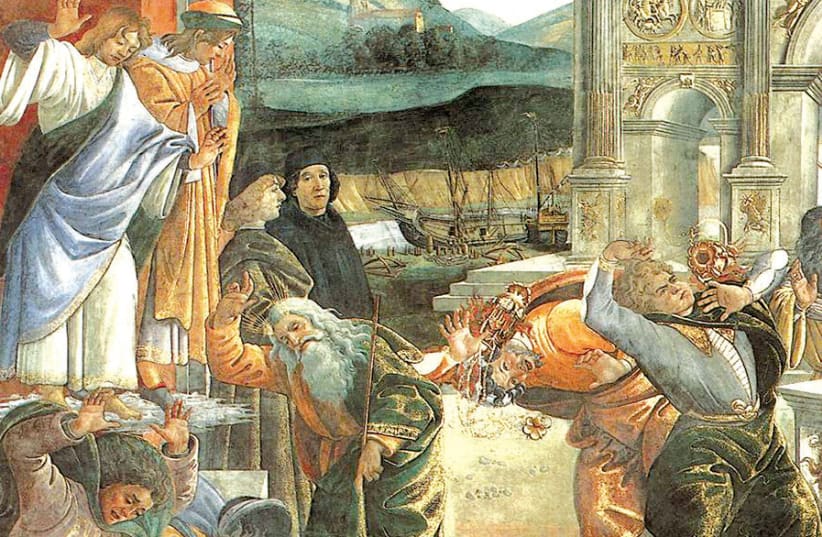As such, Moses wanted to solve this dispute in a Divine manner. He invited the rebels to come the following day to the Mishkan and bring an incense offering, ketoret, before God, along with Aaron. Whoever’s ketoret would be accepted by God would be shown to be the priest, the kohen, wanted by God. The group of rebels, despite knowing the severity of offering unwanted ketoret in the Mishkan, arrived to offer it anyway. The rebellion ended tragically; members of the group were burned in fire, the ground opened under the tents of Korah and the other leaders of the rebellion, and they were swallowed up
In the parasha, we read some of the claims of Korah and his people:
They assembled against Moses and Aaron, and said to them, “You take too much upon yourselves, for the entire congregation are all holy, and the Lord is in their midst.” (Numbers 16:3)
Korah and his companions challenged the religious and leadership hierarchy, claiming that the entire nation is holy and God resides in their midst, so therefore there is no reason for authority to be held by one person, or to limit the work in the Mishkan to one family.
In a midrash, our sages reveal another claim raised by Korah and his people. This claim is hinted at by the proximity of the rebellion’s description to the commandment of tzitzit and techelet at the end of the previous parasha, Shelah, where it states: “Speak unto the Children of Israel and tell them to make tassels (tzizit) for themselves.”
According to the midrash, Korah quickly said to Moses, “In the case of a prayer shawl (tallit) which is all techelet (blue), what is the rule about it needing techelet threads?” Moses said to him, “[Such a prayer shawl] is required to have the blue threads.” Korah countered, “Would not a prayer shawl which is all blue be exempt from the blue threads? In the case of a house which is full of [scriptural] books, what is the rule about it being exempt from [having] a mezuzah?” [Moses] said to him, “[Such a house] is required to have the mezuzah.” Korah challenged Moses: “These are things about which you have not been commanded. Rather you are inventing them [by taking them] out of your own heart.” (Numbers Rabbah 18:3)
In Parashat Shelah, we are commanded to tie fringes to the corners of clothing, some of which should be techelet, a shade of blue. According to the sages of the midrash, Korah argued with Moses regarding a tallit which is all blue. Korah thought it should be exempt from the commandment of techelet, since it is entirely blue anyway, but Moses thought it still needed to have techelet strings tied to it. A similar argument ensued regarding the commandment of the mezuzah, writing two parashiyot [sections] from the Torah and affixing it to the door frame. Korah claimed that if there is a house full of Torah scrolls, there is no point in affixing a mezuzah to the door frame, while Moses thought that even in a home like that, we are still commanded to put up a mezuzah.
What is Korah’s basic claim and why did the sages of the midrash see it as the foundation of his rebellion against Moses’ leadership and Aaron’s priesthood?
According to Korah, God’s greatness fills and rules over the entire earthly space, and therefore, holiness cannot be restricted to specific people or to a specific space. Based on Korah’s concept, an item of clothing that is entirely blue – representing the heavens – expresses godliness in the world much better than a few threads tied to its corners. And a home filled with Torah scrolls does not need one small mezuzah affixed to its door frame.
However, God’s will is completely different. God wants the world to be the kingdom of humans. But even within the kingdom of humans, God wants there to be special people whose job it is to worship God and express His presence, even as humans carry God’s presence at the entrances to their homes, the corners of their clothes, in the Mishkan, synagogues, and in moral interactions between people.
The writer is rabbi of the Western Wall and Holy Sites.
